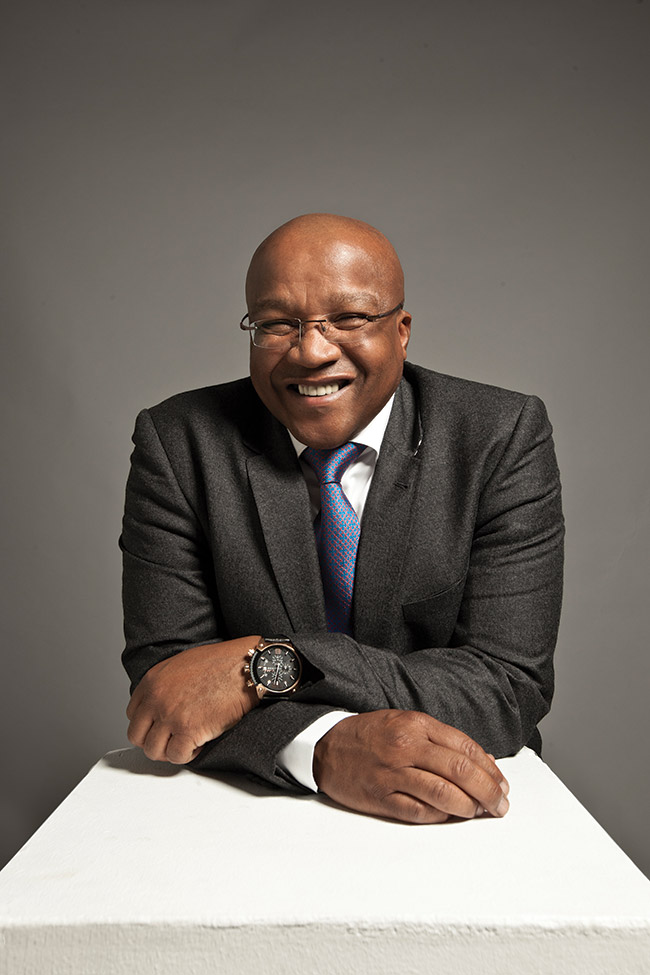African Leader
Back To The Blueprint
WHY THE BMF IS STILL IMPORTANT
I was a member of the BMF early in my career, and since then I have kept an eye on its progress. Transformation has always been part of my agenda as a leader. When I was CEO of the Construction and Education Authority, I was advocating transformation, in the construction industry, but as a facilitator. At ICASA, transformation was also part of my agenda, but there were different challenges in both of those situations. That is, in the case of CETA, the challenge was matching skills requirements of the industry with what the institutes of higher learning and training schemes where churning out. At ICASA, universal access and services with regard to telecommunications (fixed and mobile), sustaining community radio stations, and communications services for persons with disabilities were some of the challenges that still need to be addressed. Not forgetting the engine of communications services – that is, the availability of Radio Frequency Spectrum. One of the reasons why I took this job is because I saw an opportunity to go back to what I always believed in. I also wanted to interact with the various captains of industry and look at why certain mechanisms put in place to drive transformation have failed. Twenty years down the line, transformation is not visible and the penalties outlined by legislation are not working. The findings of the latest Employment Equity Report are proof of that. Economic transformation is one of the few things that we need to achieve to make democracy meaningful to the majority of South Africans still trapped in poverty, unemployment and landlessness.
We have made some inroads in terms of participation of black senior executives in some of the key sectors, but it is not enough. How many black senior executives in high- impact companies do you see with meaningful participation in their respective companies? In the banking environment, we have seen the likes of Sizwe Nxasana, Sim Tshabalala and Mario Ramos, and in ICT, we have seen black executives such as Sifiso Dabengwa, Sipho Maseko and Shameel Joosub. Also, we have seen Nonkululeko Nyembezi Heit leading ArcelorMittal, our own Bonang Mohale, who is CEO of Shell South Africa, and Nolitha Fakude, chair of Sasol. However, we need to do more. Part of my vision is to make the BMF the facilitator for all of the stakeholders – government, civil society and big business – to come together to work towards a common vision. We need to get together as a collective and interrogate why transformation is moving at a snail’s pace. The vision we need to work towards is to ensure that everyone in South Africa can participate in and contribute to the economy at different levels. At the moment we are not working as a collective. The BMF used to play a role of subtly advising and influencing the various stakeholders, but that has fallen by the wayside. I recently read an article by Reuel Khoza in one of the Sunday papers; he was saying that the BMF needs to go back to its blueprint, do some introspection and ask questions such as: have we achieved our original mandates?
THE CHALLENGES
As I see it, the BMF has external and internal challenges. Our external challenges are as follows: we have to change the perception created over the last five years that the BMF is too politicised. The BMF is not a political organisation. We need to go back to what our blueprint and original objectives are, and make sure that the BMF reclaims its role as a strategic advisor and driver of transformation. That said, though, I think we also need to measure our impact as an organisation in the transformation space and, in order to do that, we need to have clearly defined strategic objectives that filter down into our operations. If our mandate is to have 80% black representation in senior positions, how are we trying to achieve that?
We need to look at the major economic sectors and at how they are approaching transformation. Retail is still largely white after 20 years. Why? We need to cultivate more skilled leaders, like the BMF president, Bonang Mohale, who can work in the corporate sector and bring about transformation. One of my goals is for the BMF to engage honestly on transformation, on an annual basis, with companies in the major sectors, to find out what their challenges are, and, in an advisory capacity, help them to chart a way forward.
BUSA is a relevant player. Even though the BMF is no longer a member of BUSA, we need to find a middle ground with them going forward, because they cannot be ignored. We also need to look at how we interact with other organisations that have a diverse view of transformation, and partner with established sister organisations such as ABASA and NAFCOC, to form strong partnerships; then establish similar partnerships with some of the newer ones, because they are looking up to the BMF for guidance.
Richard Maponya recently said that black economic empowerment has benefited only a few people, and it is true. The BMF is not about advancing a handful; our philosophy is about levelling the playing field, so as graduates, people come through the ranks and are given equal opportunities. We are about equity and serving a majority, not a minority.
Internally, we need to make sure that we have all of the necessary competencies and resources in the organisation in order to go forward and roll out plans. I have ideas, but they still need to be discussed and assessed by the executive, the board and other stakeholders. But we need to make sure that all of our processes, policies and structures are in line with our strategic objectives. For example, we need to look at the calibre of our membership; we are in need of more established professionals. So we need to relook our membership criteria and be stringent about it. We cannot cater for everybody. While entrepreneurship is important, we are not a member body catering for entrepreneurs – that is NAFCOC’s role. Another example is that the BMF branches each need to put together a business case for their existence, and their business case needs to link to the BMF’s overall strategic objectives.
I want to inculcate a process whereby the BMF operates like a private company, and has procedures and policies so it can engage with big business and gain some respect.
MY ROLE
This is my fourth job as a chief executive officer and what I bring to the BMF is experience in stakeholder engagement with regard to transformation. During my tenure at the Construction and Education Authority, I dealt a lot with employer associations on transformation, because I had to understand what the obstacles were, in order to engage effectively. And that is the approach I think the BMF should take. It is going to take time; we are going to have to select sectors that have a high impact on the economy and focus on them. My experience in government has also given me access to a good network, so I am in a better position to facilitate engagements. The networking and the stakeholder engagements are key drivers in our objectives going forward. I will also bring a strategic approach to how the BMF articulates its philosophy, achievements and the impact of itslegacy, so that potential stakeholders have a better grasp of what we are about. My business philosophy is that you need outcome-based measurements in order to successfully drive strategy, and that is something I plan to introduce.
THE FUTURE
As a member-based organisation, we need to be able to bring added value to our stakeholders. So what we’d like to have in the future is a database that is like a senior-executive and young- professional search engine, which no other organisation has, so that when organisations or any entity is looking for a particular skills set, we can provide them with names from our membership. In addition to that, one of our focus areas going forward is self- development, so that our members’ skills and knowledge remain relevant, and they are able to engage and present new ideas as they grow in their career. People do not just become senior executives; if you look at the BMF veterans such as Nolitha Fakude and Don Ncube, they developed their intellectual capacity through academics. The BMF needs to play in this space. Our big project is a research and development department, which will be tasked with arming us with knowledge to respond to the various requirements that the market is demanding from us. The President, in his inauguration address, placed meaningful economic empowerment and gender mainstreaming at the centre of his vision for the next five years. The BMF is correctly positioned to play a meaningful role in these areas.






 Sign-up and receive the Business Media MAGS newsletter OR SA Mining newsletter straight to your inbox.
Sign-up and receive the Business Media MAGS newsletter OR SA Mining newsletter straight to your inbox.